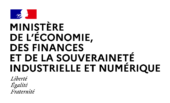
Although now many political actors take geopolitics into consideration, it must be noted that it is still neglected by some fields of reflection. While directly impacted by international relations, companies have not yet fully understood the impact they have on their activities and the responsibility this implies: international sanctions, corruption, respect of compliance rules, all these areas require perfect geopolitics monitoring to better understand and anticipate them.
In a constantly changing world (globalization, integration and disintegration, climate change and environmental issues; digital versus uberisation/social networks; the rise of civil societies and stakeholder requirements, etc.), the role of the company, its corporate name, its (re)positioning in markets and its place in society are all aspects, not exhaustive, of the challenges faced not only by companies, but also by States. It is a race against time in which the winners will be those who have anticipated and deciphered these changes and responded accordingly. Here again, geopolitics is a key tool of understanding.
A specific support
In this context, the “Geopolitics and Business” programme has several goals:
> Raise awareness among the different actors (companies, financial institutions, public authorities, civil society) of the importance of geopolitics and the correlation with the companies’ activity.
> Bring a multidisciplinary eye mixing geopolitics, geoeconomics, technology, compliance, so as to take into account the systemic dimension of the links between geopolitics and business.
> Put the compliance and responsibility questions at the heart of a new strategic analysis grid for companies and exchange knowledge.
> Give companies the means to keep performing (anticipation, understanding, training, prevention, etc.) and give public authorities the means to support them (political support, appropriate and respected regulatory framework, economic intelligence) in these systemic societal changes in a well-understood and renewed defence of the national interest.
A renowned expertise
The researchers of the « Geopolitics and Business » programme carry out studies, reports and consultancy notes for French and international public bodies, as well as for the private sector.
To assist companies in understanding a complex environment and developing their activities abroad, the French Institute for International and Strategic Affairs (IRIS), renowned for its expertise both nationally and internationally, offers a wide range of services and an expertise adapted to short, medium and long-term needs and strategies.
The PERSAN study
In 2017, IRIS conducted the study « PERSAN – Performance of international sanctions » with the support of the Higher Council for Strategic Research Training (CSFRS). It presented a reflection on the use of sanctions by establishing an evaluation no longer based on simple effectiveness, but on performance defined as the combination of three dimensions: relevance, effectiveness and efficiency.
This study has enabled the IRIS teams to position themselves among the best experts of international sanctions. They are thus able to lead the reflection and train on these issues.
LEARN MORE (in French): ANALYTIC SUMMARY – FINAL REPORT – TYPOLOGY AND CASE STUDY












